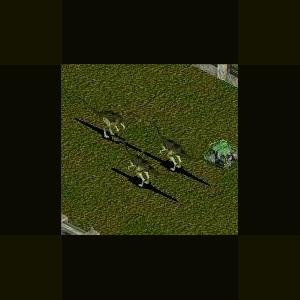About This File
Byronosaurus
Byronosaurus was a troodontid dinosaur which lived during the Late Cretaceous Period. It was named for Byron Jaffe, "in recognition of his family's support for the Mongolian Academy of Sciences-American Museum of Natural History Paleontological Expeditions." The first example of Byronosaurus was discovered in 1993 at Ukhaa Tolgod, Gobi Desert, Mongolia; a second was found in 1996 at Bolor's Hill, about 8 kilometers away (5 miles).
Byronosaurus was a small, agile dinosaur that was probably only 1.5 meters long (5 ft) and 50 centimeters high (17 in). It weighed only about 4 kilograms (9 lbs). Unlike most other troodontids, its teeth seem to lack serrations. They are instead needle-like, probably best suited for catching small birds, lizards and mammals. Specifically, they resemble those of Archaeopteryx, the bird-like dinosaur.
The remains of two individuals have been found, including two skulls. One, measuring 23 centimeters long (8 inches), is better preserved than any other troödontid skull found to date. It has a chamber in the snout where air enters from the nostrils before passing through to the mouth - another feature similar to that found in birds.



Recommended Comments
There are no comments to display.
Create an account or sign in to comment
You need to be a member in order to leave a comment
Create an account
Sign up for a new account in our community. It's easy!
Register a new accountSign in
Already have an account? Sign in here.
Sign In Now